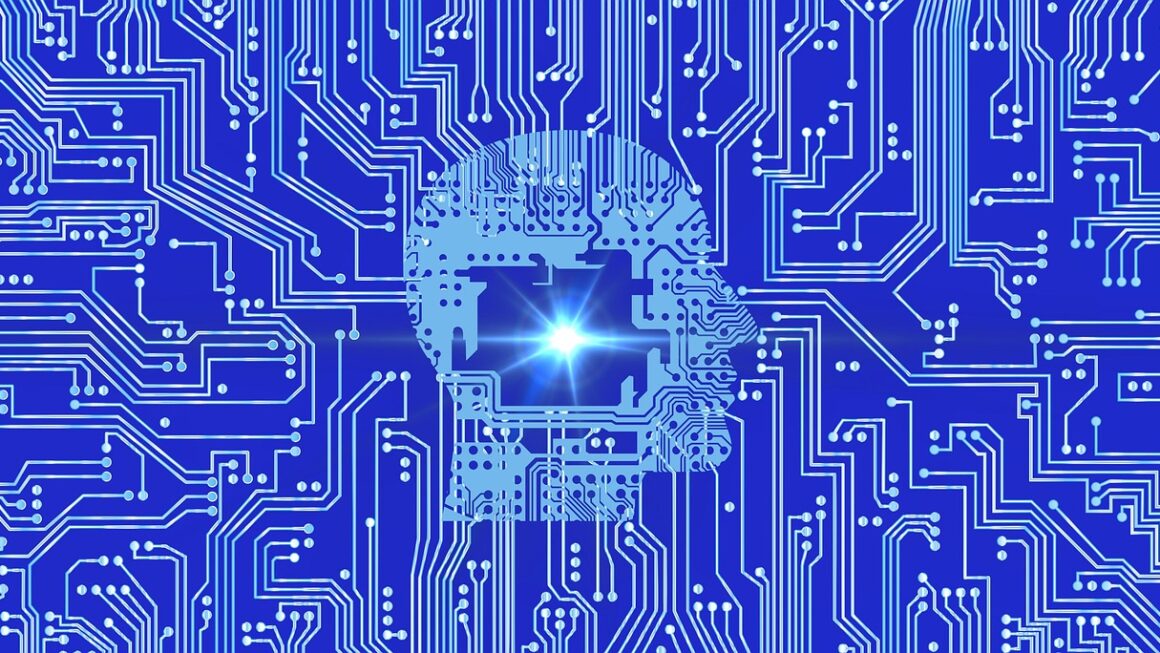Artificial intelligence (AI) is rapidly transforming industries, and healthcare is no exception. From streamlining administrative tasks to enhancing diagnostics and personalizing treatments, AI’s potential to revolutionize patient care and improve healthcare outcomes is enormous. This article delves into the multifaceted applications of AI in healthcare, exploring its current impact and future possibilities.
AI-Powered Diagnostics & Imaging
Enhancing Accuracy and Speed
AI algorithms are becoming increasingly adept at analyzing medical images, such as X-rays, MRIs, and CT scans. This capability enables faster and more accurate diagnoses, potentially saving lives and reducing the burden on radiologists.
- Example: AI-powered systems can detect subtle anomalies in mammograms that might be missed by human eyes, leading to earlier detection of breast cancer. Studies have shown that AI can improve the accuracy of mammogram interpretation by up to 5%.
- Example: Google’s DeepMind developed an AI system that can diagnose over 50 eye diseases with an accuracy comparable to expert ophthalmologists.
Applications in Specific Diseases
AI is being applied to the diagnosis of a wide range of diseases, including:
- Cancer: AI can analyze pathology slides to identify cancerous cells and predict tumor behavior.
- Neurological Disorders: AI algorithms can analyze brain scans to detect signs of Alzheimer’s disease, Parkinson’s disease, and multiple sclerosis.
- Cardiovascular Disease: AI can analyze ECG data to detect arrhythmias and predict the risk of heart attacks.
- Actionable takeaway: Explore AI-powered diagnostic tools to improve accuracy and speed in image analysis within your medical practice.
Personalized Treatment Plans
Tailoring Treatments to Individual Needs
AI algorithms can analyze vast amounts of patient data, including medical history, genetic information, and lifestyle factors, to develop personalized treatment plans. This approach ensures that patients receive the most effective treatments based on their unique characteristics.
- Example: AI can predict a patient’s response to different medications, allowing doctors to choose the most effective drug and avoid adverse side effects.
- Example: In oncology, AI can analyze tumor DNA to identify specific mutations and recommend targeted therapies.
Predicting Patient Outcomes
AI can be used to predict patient outcomes and identify individuals who are at high risk of developing certain diseases or experiencing complications.
- Example: AI can predict the likelihood of hospital readmissions, allowing healthcare providers to intervene and prevent unnecessary hospital stays.
- Example: AI can predict the risk of sepsis in hospitalized patients, enabling early intervention and improving survival rates.
Actionable takeaway: Use AI-driven insights to customize treatment plans and optimize patient care for improved outcomes.
AI in Drug Discovery & Development
Accelerating the Drug Development Process
AI is revolutionizing the drug discovery and development process by accelerating research, reducing costs, and improving the success rate of clinical trials.
- Identifying Potential Drug Candidates: AI can analyze vast databases of chemical compounds and biological data to identify promising drug candidates.
- Predicting Drug Efficacy and Safety: AI algorithms can predict the efficacy and safety of drugs in preclinical studies, reducing the need for expensive and time-consuming animal testing.
- Optimizing Clinical Trial Design: AI can be used to optimize clinical trial design, selecting the right patients and endpoints to maximize the chances of success.
- Example: Atomwise, an AI drug discovery company, used its technology to identify potential treatments for Ebola virus.
AI-Driven Drug Repurposing
AI can also be used to identify existing drugs that can be repurposed to treat new diseases. This approach can significantly accelerate the drug development process and bring new treatments to market faster.
- Example: BenevolentAI used its AI platform to identify an existing drug, baricitinib, as a potential treatment for COVID-19.
Actionable takeaway: Leverage AI tools for drug discovery to accelerate research, reduce development costs, and identify new treatment options.
AI-Powered Robotic Surgery
Enhancing Surgical Precision and Minimizing Invasiveness
AI-powered robotic surgery systems can enhance surgical precision, reduce invasiveness, and improve patient outcomes.
- Increased Precision: Robots can perform complex surgical procedures with greater accuracy and control than human surgeons.
- Minimally Invasive Procedures: Robots can access difficult-to-reach areas of the body through small incisions, reducing pain and scarring.
- Improved Patient Outcomes: Robotic surgery has been shown to reduce blood loss, shorten hospital stays, and improve recovery times.
- Example: The da Vinci Surgical System is a robotic surgery platform that is used for a wide range of procedures, including prostatectomies, hysterectomies, and heart valve repairs.
AI Assistance in Robotic Surgery
AI can provide real-time assistance to surgeons during robotic surgery, helping them to make better decisions and avoid errors.
- Image Guidance: AI can overlay anatomical images onto the surgical field, providing surgeons with a real-time view of the underlying structures.
- Motion Tracking: AI can track the surgeon’s movements and provide feedback to improve their technique.
- Anomaly Detection: AI can detect anomalies in the surgical field, such as bleeding or tissue damage, and alert the surgeon.
Actionable takeaway: Integrate AI-assisted robotic surgery systems to enhance precision, minimize invasiveness, and improve patient outcomes.
AI-Driven Administrative Efficiency
Automating Tasks and Reducing Costs
AI can automate many administrative tasks in healthcare, freeing up staff to focus on patient care.
- Appointment Scheduling: AI-powered chatbots can schedule appointments, send reminders, and answer patient inquiries.
- Claims Processing: AI can automate claims processing, reducing errors and speeding up reimbursement.
- Medical Coding: AI can automatically code medical records, improving accuracy and efficiency.
- Example: Many hospitals are using AI-powered chatbots to handle routine patient inquiries, reducing the burden on call centers.
Improving Operational Efficiency
AI can also be used to improve the overall operational efficiency of healthcare organizations.
- Predicting Patient Demand: AI can predict patient demand, allowing hospitals to allocate resources more effectively.
- Optimizing Staffing Levels: AI can optimize staffing levels, ensuring that there are enough staff on hand to meet patient needs.
- Reducing Waste: AI can identify areas where waste can be reduced, such as unnecessary tests and procedures.
Actionable takeaway: Implement AI-driven automation to streamline administrative processes, reduce costs, and improve operational efficiency in healthcare facilities.
Conclusion
AI is poised to revolutionize healthcare, offering the potential to improve patient outcomes, reduce costs, and enhance efficiency. From AI-powered diagnostics and personalized treatment plans to drug discovery and robotic surgery, the applications of AI in healthcare are vast and rapidly evolving. By embracing these technologies, healthcare organizations can unlock new opportunities to deliver better, more affordable, and more personalized care to patients around the world. As AI continues to advance, its impact on healthcare will only grow stronger, shaping the future of medicine for generations to come.




